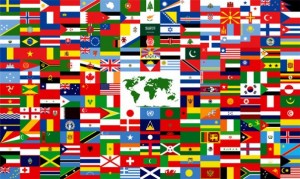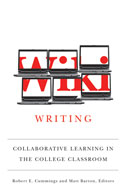April 20, 2009
Intentional Energy
 This past weekend I took part in an exciting panel on internet labor at the Left Forum, but the highlight of the weekend was serendipitous. I attended a salon hosted by Reality Sandwich:
This past weekend I took part in an exciting panel on internet labor at the Left Forum, but the highlight of the weekend was serendipitous. I attended a salon hosted by Reality Sandwich:
Electrical energy is political energy is personal energy is metaphysical energy: A discussion on technological tools and political policy for opportunities of human freedom and evolution.
While I am usually open to edgy ideas, and am quite comfortable entertaining (and sometimes visiting) alternate realities, I certainly wasn’t expecting the treat I encountered. Ryan Wartana orchestrated an amazing experience, successfully interweaving the metaphors of energy and power through the lenses of the physical, personal, political, and metaphysical.
Ryan has PhD in chemical engineering and has been researching and working with nanotechnology and batteries for over a decade. Professionally, he is the CTO for the alternative energy startup iCel Systems and is quite committed to alternative renewable energy solutions. He was on the East Coast participating in conference in DC on Advanced Battery Manufacturing, and swung through NYC to connect with other segments of his network.
To give you a sense of the atmosphere, Ryan spoke against the backdrop of a revolving slideshow of sacred geometry (which I have studied also), whose forms and principles have inspired many of his artistic/scientific inquiries and designs. He has worked with researchers growing self-repeating and self-replicating nanostructures, and it soon became clear how inhabiting this domain influenced his thinking. Some large problems can be effectively broken into tiny parts, but it can be difficult to imagine how to practice this w/out radically adjusting our perspective.
I left the lecture with a much clearer vision of what an intelligent energy grid, or an “internet of energy” is all about. Basically, the current energy grid is unidirectional, and on-demand. It is a centralized distribution system, much like last century’s mass broadcast media. If we distribute a dollop of storage and intelligence to the network, many amazing possibilities emerge. The analogy with integrated circuits was quite provocative – our current grid is like a circuit board w/out any capacitors on it. iCel and companies like them are trying to become the Cisco of the Energy platform, and create integrated energy systems. So, individuals could draw power when its inexpensive (at night) and produce power and return it to the grid, or even to their peers – bittorrent style.
The power of distributed networks to improve redundancy and resilience, and reclaim lost bandwidth and capacity is well known in information technology and network theory. Google has even been distributing their physical power storage in their servers. But the possibilities Ryan illuminated intuitively clicked for me – and I trusted his vision, even though he is in the battery business 😉
These distributed energy systems are vital, and starting to happen. I wondered about connections with the electric car venture – Beter Place. Their system is immensely promising, but riddled with uncertainty. Will their hardware interoperate with other power providers, or will people be locked in? Will their customers be better off relying on a centralized transportation provider, instead of remaining independent and relatively autonomous? What there be provisions to mitigate the surveillance threats their network poses? When you mash good batteries up with Better Place (with a bit of peer-to-peer pressure), many of these problems melt away.
We also talked alot about the importance of energy awareness, giving way to energy responsibility, leading to energy intentionality. These ideas actually had alot to do with my presentation at the Left Forum, which are hinted at in my take on Free Energy.
The talk left me invigorated and hopeful. NYU’s ITP has had some great projects on energy awareness, and there is even a prof at Columbia who wants to rig up a dorm with energy monitoring. And, some of our work at CCNMTL with the Earth Institute and the Millenium Villages might benefit from these insights and connections as well.
I attended the Reality Sandwich event hoping that a dose of creative consciousness expansion would offset the heaviness of struggle at the Left Forum. What a refreshing contrast to feeling trapped inside an inescapable system. We can imagine our way free.
Banish the word struggle from your attitude and your vocabulary. All that we do now must be done in a sacred manner and in celebration. “We are the ones we’ve been waiting for.” — Hopi Elder
 Filed by jonah at 10:03 pm under earth,ethics,freeculture,metaphysics
Filed by jonah at 10:03 pm under earth,ethics,freeculture,metaphysics
 1 Comment
1 Comment

 At the beginning of the semester I shopped a class offered in the Columbia CS Dept on
At the beginning of the semester I shopped a class offered in the Columbia CS Dept on 





